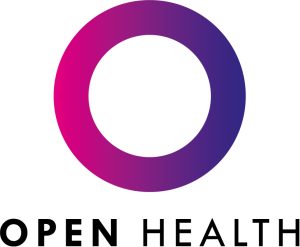Generating data on long-term outcomes with gene and other advanced therapies
December 5, 2019 |
Gene therapy and advanced cell-based therapies offer patients hope and the potential to make them ‘chronically well’.
Long-term monitoring of patients to collect outcome data after treatment with these therapies will be standard practice for the foreseeable future; it will therefore be necessary for bio-pharma and health system stakeholders to find effective ways to develop sustainable data capture programmes that meet regulatory requirements and demonstrate value. In this article, we explore several possible ways of supporting the unprecedented need for high-quality and sustained data capture.
Bio-pharma are required to adhere to strict regulations set by the FDA and EMA on monitoring long-term outcomes when launching advanced therapeutic medicinal products (ATMPs). They request that large cohorts of patients are followed up for many years to assess long-term safety and efficacy. In addition, any novel pricing mechanism to support the reimbursement of these ‘one- or few-time’ treatments will require that processes to ensure that robust generation of outcome data are achievable in the long term. These requirements are truly unprecedented, with existing registry models and methodologies unlikely to offer sustainable and cost-effective solutions to these challenges.
Ergo, new models need to be identified. However, to truly meet the needs of all stakeholders involved, it is important to first recognise some of the specific challenges that may be encountered when generating long-term outcomes data.
From a patient perspective, and if ATMPs fulfil their promise, post-treatment disease symptoms may be considerably reduced or even non-existent. Therefore, ongoing contact between patients and their healthcare team may become limited, and this could be a key factor that leads to patients being lost to follow up. Add to this the likely scenario of changes in the healthcare setting (e.g. from a treatment initiation centre back to the referring physician) and significant life changes (e.g. from adolescence into adulthood), monitoring patient outcomes may become increasingly more difficult.
From a health system perspective, it is likely that ATMPs will continue to be introduced in a small number of specialised treatment centres. Connectivity between healthcare professionals (HCPs) across the referral and treatment pathway could be complex, responsibilities for data input may not be clear, and governance arrangements for transferring data between settings are also likely to be complicated. This means that it will be challenging to work with all HCPs and centres involved in a patient’s ongoing care from a logistical and cost perspective.
So, there are multiple challenges involved in monitoring long-term outcomes where there is little precedent. Solutions need to be well-thought-out, multi-functional and innovative to have any chance of success. We recommend using the following strategic framework to build an effective solution:

GEARED WITH THE PATIENT AT THE CORE:
The patient and their caregiver are the only definitive constants during a long-term follow-up period, and should be seen as the critical stakeholders in solution development. With the right communication and platform, the patient can facilitate data capture and report quality of life and other patient-centred outcomes. Patient activation is key to capture long-term data and outcomes monitoring programmes should include a way of measuring this to ensure ongoing engagement. This provides HCPs and study staff with alerts of potential drop off and personalised supportive information can be provided to support continued engagement with the registry.
POWERED BY A TECHNOLOGY PLATFORM:
In this age there is an expectation that digital tools have excellent functionality – and this will be no exception here. Creating an application that enables frictionless engagement and data capture will assist with sustained use and stakeholder engagement. It must also be flexible enough to evolve with advances in technology and robust to meet data capture, transfer and data governance regulations, often across multiple borders. Flexibility is also key for new systems to be able to integrate with existing registry databases, avoiding the need to record data in multiple ways and to assist in complementing the success of existing registries.
SUPERCHARGED BY STAKEHOLDER COMMUNICATIONS:
However effective the technology platform is at delivering simple and easy-to-use functionality, experience shows we cannot solely rely on this. Given the multi-layered network of stakeholders potentially involved over a long period of time, patients, caregivers and HCPs will have to understand the value in programme participation and the ‘higher purpose’ of playing a role in its success. This means impactful and relevant communication needs to be developed to assist with value recognition. For example, these could be ‘closed door’ symposiums presenting long-term outcome data at congresses for participating HCPs, or annual events for patients and their families to recognise the growing community of patients receiving ATMPs.
DRIVEN BY EXCEPTIONAL PROJECT MANAGEMENT:
As described earlier, several different disciplines will be required to successfully deliver effective long-term follow up. What must not be overlooked is the ultimate objective of this programme, which is to capture real-world evidence to demonstrate the safety, effectiveness and value of ATMPs. Having a highly experienced team to provide the rigour around a quality data capture solution, and the project management skills to bring all the disciplines together, will be essential for project success.
Long-term outcome monitoring after treatment with an ATMP is exciting because it offers a platform for positive partnerships between bio-pharma, HCPs, patients and caregiver advocates to enable better outcomes. This is truly unprecedented and more involved than previous solutions to the challenges facing a registry. Early experience with existing gene therapies has shown that long-term outcome monitoring can be challenging, but with the right combination of capabilities and technology, we are confident it is eminently possible.
If you would like to discuss how we could help you deliver outcomes with your advanced therapies then please contact me:
This content was provided by OPEN Health





